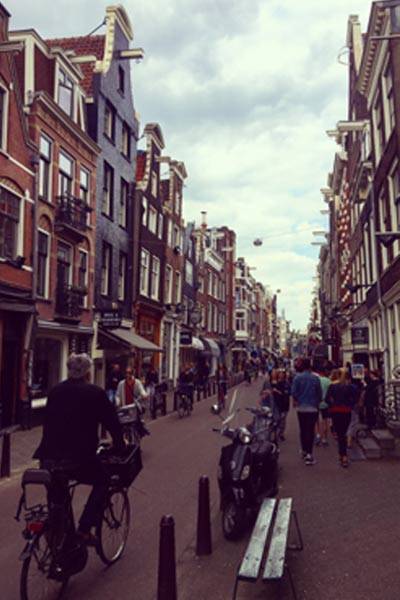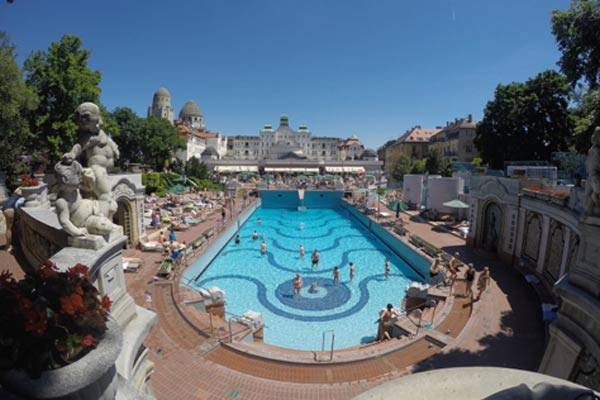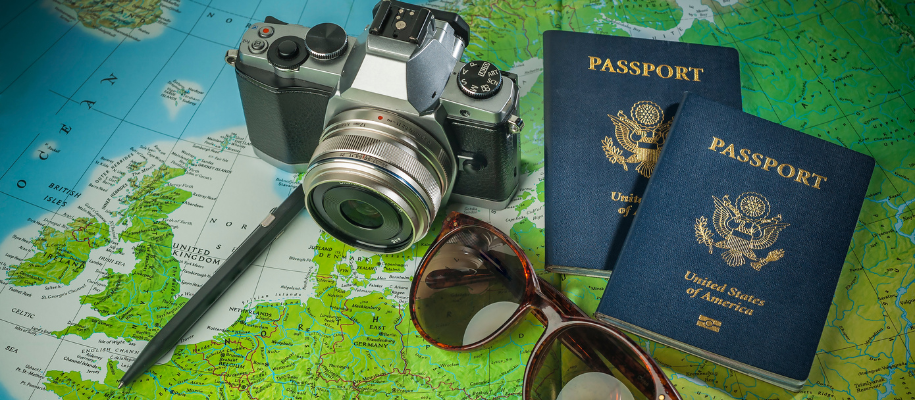Last summer my sister and I were lucky enough to travel to seven European countries for about three weeks. Though it was a quick trip, we both learned a lot about ourselves and traveling while having the experience of a lifetime. If you plan to study abroad in Europe or become an avid traveler, here are some tips to help make your life easier.

Amsterdam, Netherlands 📸: Georgia Krendel
Trains
What better way to travel across Europe than by train? This mode of transportation is great for many reasons. First, trains aren’t as time-consuming as most flights. You can show up about 25 minutes before your train leaves and make it to your seat with plenty of time to spare.
My favorite part about train travel was seeing different parts of Europe. Looking out the window is like experiencing a whole different world. Yes, on a plane you get to experience a beautiful aerial view, but nothing compares to the views of Switzerland’s countryside from the train window. Trains are also much cheaper than plane tickets. This brings me to my next tip…
Eurail Pass
If you plan on taking more than just a couple of train rides while you’re abroad, then the Eurail Pass is a must. The Eurail Pass is basically one train ticket that functions as multiple. It allows you to get on any train whenever you want. (Some trains do require a reservation, but these are usually the overnight ones, so check ahead of time.)
Eurail also has an easy-to-use app that tells you everything you need to know, including departure and arrival times as well as location. Want to go to a nearby city for the day? Check the app and hop on a train! Yes, it’s that easy. My sister and I even took a train from Nice, France, to Monaco for dinner one night. Eurail also sends you a free gift if you send in your pass after your trip is complete.
Related: How to Be Extra Safe While Studying Abroad in College
Traveling light
This is crucial. It doesn’t matter if you’re going somewhere for a week or a month—you can fit everything you need while you're traveling into a carry-on bag. Take what you think you need and cut it in half; trust me, you won’t need that one top that only goes with that one pair of jeans and sandals. You’ll be able to do your laundry in hostels easily (more on those below). You aren’t going to want to lug around a giant bag because most hostels don’t have elevators…and guess who’s stuck carrying it up all those stairs? You got it—you. While I was in Europe, I took a carry-on bag and a backpack and didn’t even wear half the clothes I had packed.

Georgia in Interlaken, Switzerland
Hostels
I love hostels. After my trip last summer, I wouldn’t even consider staying in a hotel because hostels are just that great. For starters, they’re so much cheaper than hotels. Staying in hostels is also a great way to meet people from all over the world, especially if you’re traveling alone. My sister and I met quite a few travelers from different countries who were flying solo—some my age, some older, and all with unique stories about why they were traveling. We eventually ended up going out to eat with them and just hanging out and getting to know them. Meeting people from all over the world is truly eye-opening.
Hostels have kitchens that allow you to cook your own food. This is a huge plus, especially if you’re trying to save money or eat right. They also almost always offer laundry machines. Hostel staff usually consist of very well-traveled individuals who are there to help you see the best parts of the city. If you want more from your trip than just a touristy view, definitely ask the staff for recommendations. Chances are they know the best places in town and the best way to experience the culture.
Insider tip: Bring flip-flops. You wouldn’t want to shower barefoot in your college dorm, right? Trust me, you won’t want to in hostel showers either. Lastly, check out hostelworld.com. It’s a very helpful website when looking for hostels. Booking is super easy through this website.
Related: 10 Things You Need to Pack for Study Abroad
Money exchange
First, make sure your bank knows you’re traveling out of the country. If you don’t notify them, they may deem your card stolen and inactivate it or an ATM will snatch it from you (this happened to my brother in Spain last year). Try your best not to do a money exchange at the airport or train station. Your best bet is to look for a place with 0% commission. A good way to find the best one is to ask the hostel staff or even a tour guide—they would love to give you some guidance.

Prague, Czech Republic 📸: Georgia Krendel
Public transportation
Use it. That’s what it’s there for. At first, taxis might not seem expensive, but believe me, they’ll add up. Public transportation is definitely the way to go. For one, it’s significantly cheaper than other options. In addition, you get to experience how the locals get around. It might seem difficult to navigate or figure out at first, but after a bit of practice, you’ll get it. European public transportation is usually pretty easy to get the hang of.
Pickpockets
Honestly, I never had a serious issue with pickpockets. But I know people who have. I tried my best to only carry around a small bag and always kept it close to me, holding it against my body in large crowds. I love carrying backpacks around at home, but when traveling, I advise against them. The only situation in which I would recommend one is if you’re traveling in a group and have someone to keep an eye on it while it’s on your back. I recommended a cross-body bag that’s relatively small. Carrying around a large purse will get old really quickly.
Related: How You Can Overcome 3 Common Study Abroad Stressors
Tipping
This might shock you, but in some countries, it’s actually considered rude to tip! I know, crazy, right? It’s because in Europe, waiting tables is considered a profession. Some countries do expect a tip though, so make sure you do your research before heading out for a meal.

Budapest, Hungary 📸: Georgia Krendel
Wi-Fi
Let’s be honest—this is a huge concern to most people when they go abroad. Before you sit down at a restaurant, ask if they offer free Wi-Fi. Most do but refrain from broadcasting it. I know some travelers who won’t eat at a restaurant unless they have Wi-Fi. This is a fair system in my opinion—you only want to use data if it is necessary (i.e., an emergency/maps/locating something). I tried to limit my data usage because I didn’t want my phone bill to be through the roof. Before you leave home, you should call your phone company and work out a plan for your data for the duration of your trip.
Related: 6 Smart Financial Plans Before You Study Abroad
Traveling anywhere in Europe as a student will help you learn a lot and make memories that will stick with you forever. From riding trains with amazing views to meeting new people to staying in hostels, every adventure is a chance to grow and have fun. Remembering stuff like how to get around, where to stay, and even how to tip can make your trip smoother and more exciting. So keep it light, stay open to new things, and let Europe work its magic on you. Bon voyage!
Did you enjoy this blog? Check out even more fun travel tips from students and experts with Our Best Advice on Studying Abroad in College.






